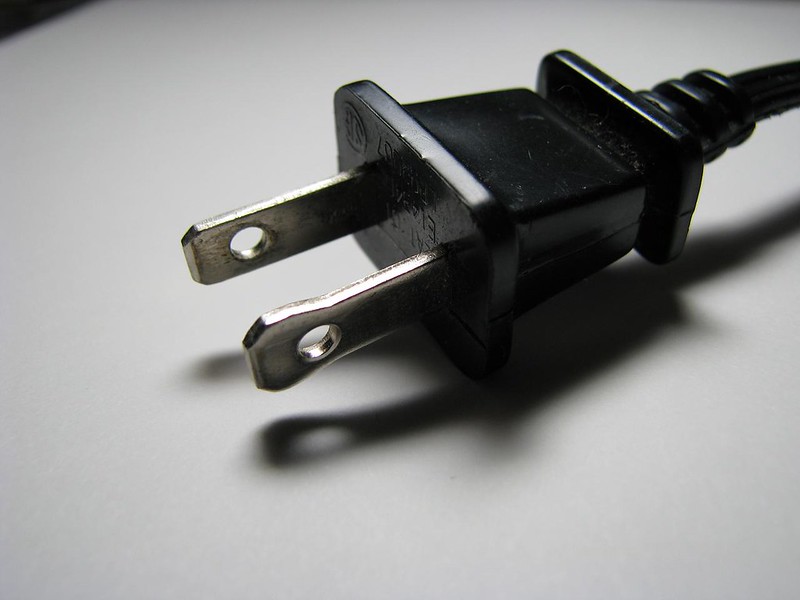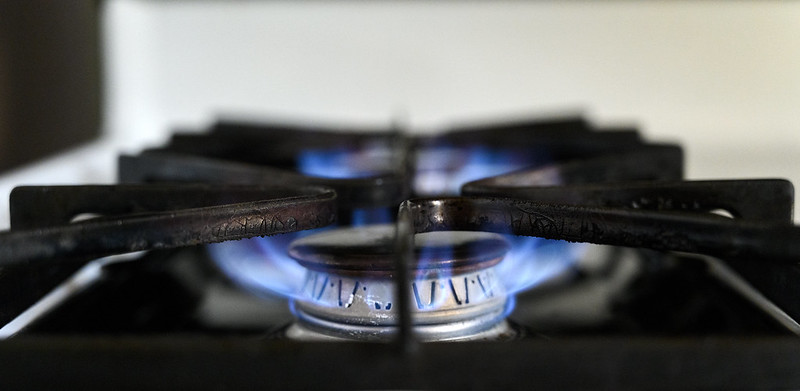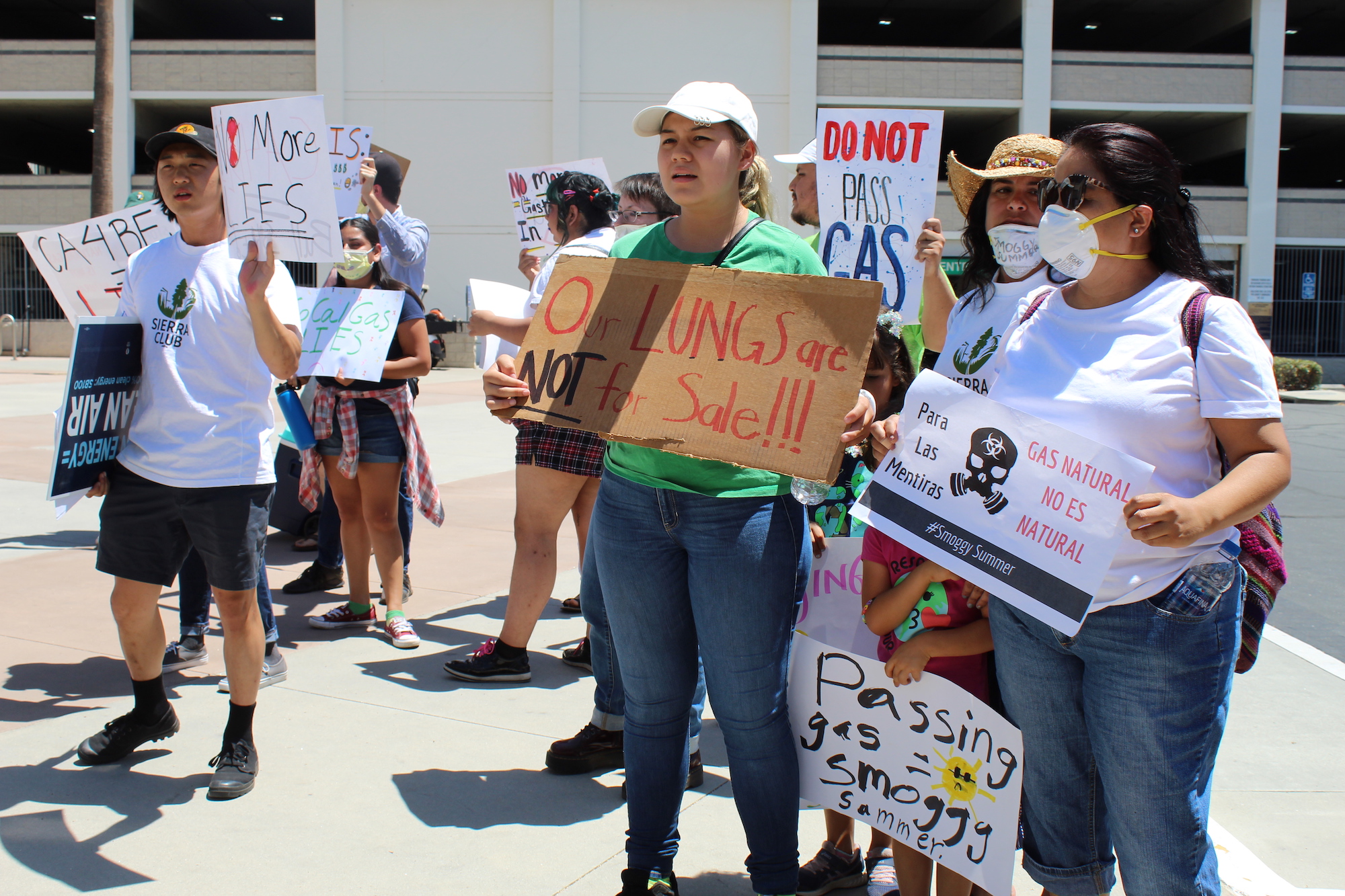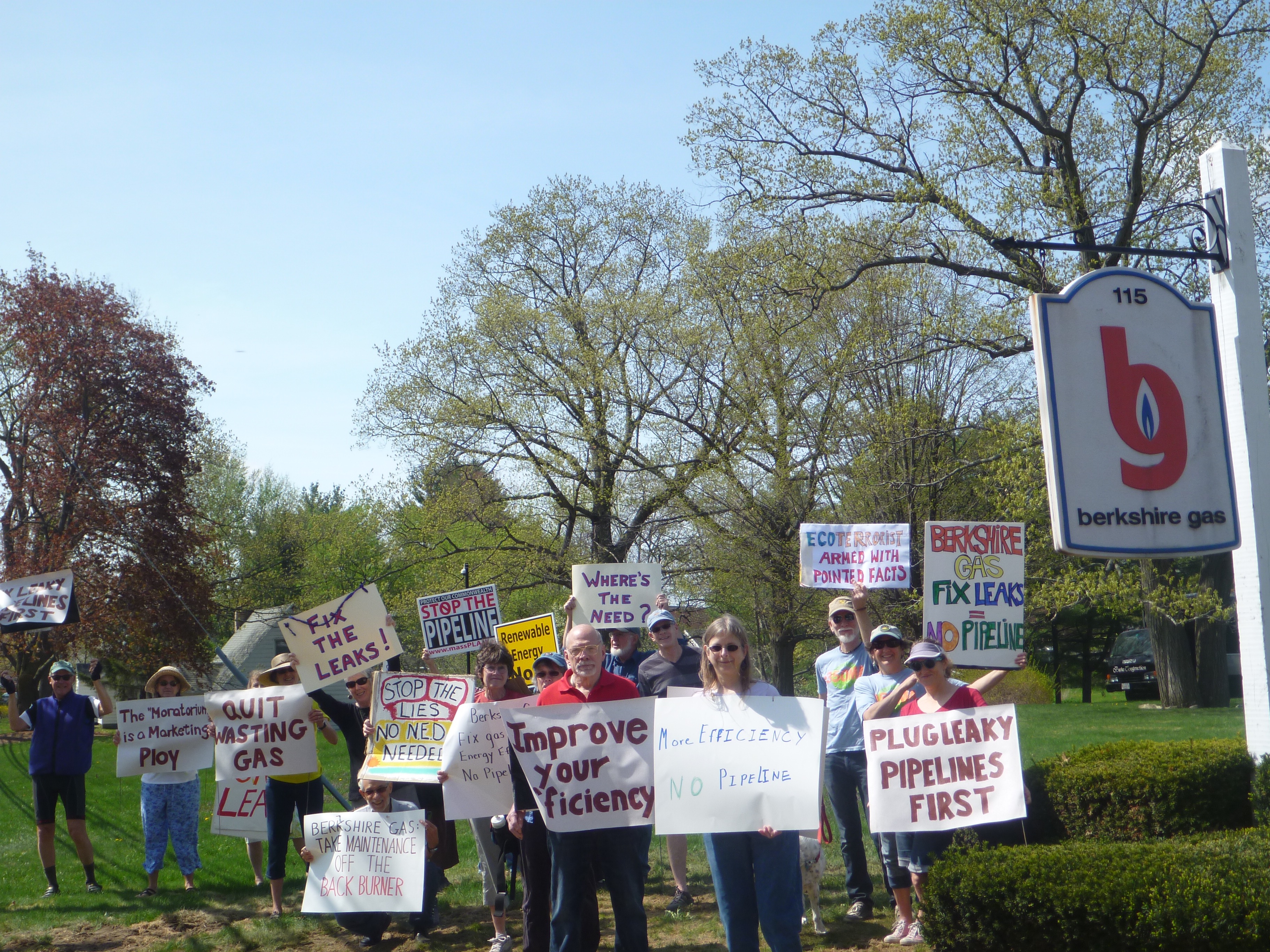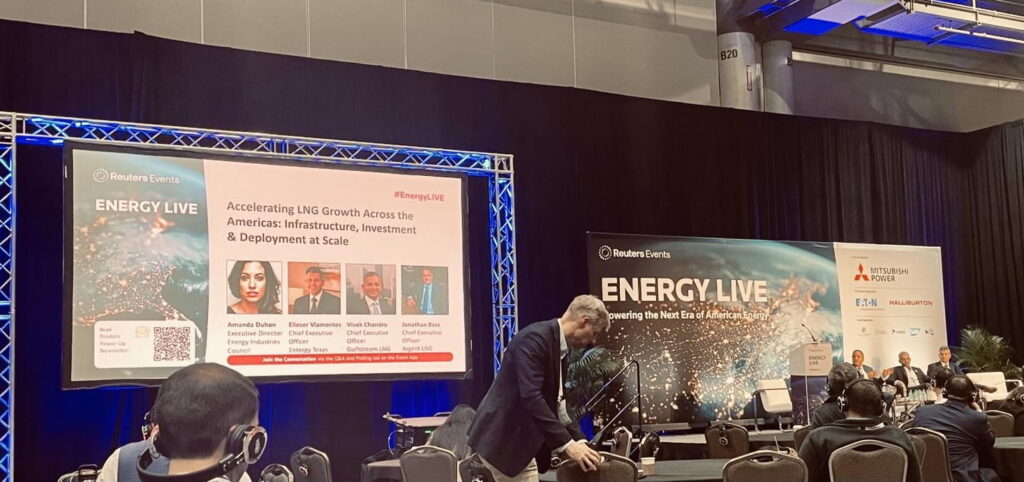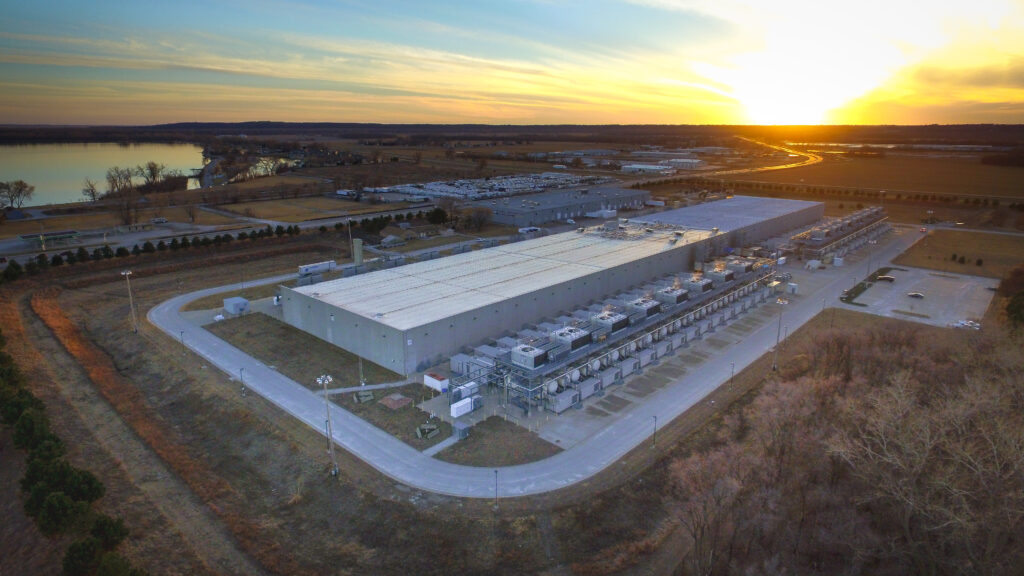Just over a year ago, the city of Berkeley, California, passed into law a first-in-the-nation ordinance prohibiting natural gas hookups in new buildings, a move that alarmed the gas industry. This alarm has since boiled over into a full-fledged opposition campaign to counter the rising tide of similar measures meant to restrict gas in favor of constructing all-electric buildings and cutting carbon pollution.
Natural gas constitutes a vast majority, about 80 percent, of the direct fossil fuel CO2 emissions from the residential and commercial sectors, according to the U.S. Environmental Protection Agency (EPA). Transitioning away from direct fossil fuel use in buildings is key for de-carbonizing and meeting climate targets, experts say.
Initiatives are starting to emerge at the local level on the West Coast and in the Northeast to support this transition, with 31 cities in California committed to phasing out gas use in buildings, as of July 8, and several Massachusetts communities in the Boston area doing the same. Policies for electrifying buildings are also in the works in New Jersey as well as Seattle and other cities.
Gas is commonly used for stovetop cooking. Credit: Plonq, CC BY–NC–SA 2.0
The gas industry, wary of a direct threat to its business, is pushing back against building electrification policies. Gas industry trade associations are spending large sums, some of it taxpayer dollars, on public relations (PR) campaigns, astroturfing and front groups to oppose initiatives aimed at curbing direct gas use.
Climate Investigations Center (CIC) says it “has obtained thousands of internal records from the natural gas industry which document its anti-electrification efforts.” According to this watchdog nonprofit organization, “The records reveal underhanded tactics including astroturfing, cynical marketing campaigns targeted at millennials, coordination with climate denier organizations and much more.”
This story is the first in a series on the gas industry using public dollars to fight building electrification. First, DeSmog examines the PR campaigns and front groups that are the public face of this effort; subsequent stories will highlight several cities that are funding the gas industry through municipal utilities, and how that funding may be undermining the cities’ climate goals.
Spending Public Dollars to Promote Gas
The American Public Gas Association (APGA) is the national, nonprofit trade association for municipal or publicly owned natural gas utilities and local distribution companies. Its stated vision is “to be the voice and choice of public gas.” Most of its funding comes from membership dues from municipal gas utilities, meaning that the average residents served by these utilities are paying APGA through their monthly utility bills.
Although APGA is supposed to represent “public gas,” it appears to align policy-wise with the larger, private-interest gas industry, and it is dedicating significant funding towards this pro-gas, anti-electrification advocacy.
This story is part of the investigative series, Unplugged: The Gas Industry Is Fighting Efforts to ‘Electrify Everything’
According to Climate Investigations Center, APGA is spending over a half million dollars in 2020 on efforts to fight building electrification and promote direct gas use.
APGA’s Direct Use Task Group (DUTG), for example, coordinates activities including federal lobbying, building codes and standards advocacy, and a marketing campaign directed at millennials called “Gas Genius.” This campaign “takes aim at prospective millennial homebuyers who might be choosing between gas or electric appliances,” according to CIC. PR firm Porter Novelli developed Gas Genius and the gas industry paid millennial “influencers” to post Instagram photos using gas stoves, as Mother Jones reported in June.
My new story on the gas industry
paying Instagram influencers to gush over gas stoves in its battle to defeat clean energy https://t.co/gn6Dl63Qbn pic.twitter.com/TdNYud8sxD— Rebecca Leber (@rebleber) June 17, 2020
APGA launched its Media and Public Outreach Committee (MPOC) in 2019 to provide support and messaging “on the benefits of direct use…” According to a document obtained by CIC, APGA described the committee’s objective as “winning the communications war,” and the trade group is spending $200,000 to implement this communications strategy in 2020. A document from the 2018 APGA conference contains the MPOC proposal, which includes an excerpt describing electrification proponents as “misdirected and extreme environmentalists.” That MPOC proposal also suggests ghost writing articles and coordinating with ultra-conservative, climate-denying groups like the Heritage Foundation, Heartland Institute, and Texas Public Policy Foundation.
Beyond using marketing and PR campaigns, the gas industry is engaging in astroturfing — creating fake or misleading grassroots support for its positions — and enlisting various front groups to help advocate for pro-gas policies. These groups are typically managed by PR firms, have funding ties to gas utilities, and give an impression of broad community support with membership from stakeholders, such as business interests, labor groups, and farmers.
Examples of these groups have emerged in California, the Pacific Northwest, Hawaii, New Jersey, and Massachusetts.
Gas Industry Front Group: Californians for Balanced Energy Solutions (C4BES)
This self-described “coalition” advocates for gas (both fossil and “renewable” gas, or biomethane) and claims its “members include families, small and large commercial businesses, industrial users, local governments and nonprofit organizations. The Los Angeles Times describes the group as a “grassroots group, funded by industry,” as reporting has revealed that the major investor-owned gas utility servicing southern California, Southern California Gas (SoCalGas), largely initiated and funded the group. According to the Times, internal records show that SoCalGas provided almost half of the $220,000 in contributions that C4BES received from Jan. 1 through Aug. 12, 2019. Furthermore, SoCalGas has been caught using ratepayer money (one documet reveals nearly $28 million in spending) to fund this gas advocacy group. The California Public Utility Commission’s consumer watchdog office argues this is clear astroturfing and is urging the PUC to sanction the gas utility. SoCalGas is reportedly refusing to comply with an investigation and subpoeana issued by the PUC‘s Public Advocates Office.
Southern California Gas is being investigated by a consumer watchdog agency for allegedly spending customer money to fight climate action. SoCalGas is refusing to comply with a subpoena and arguing its constitutional rights are being trampled.
My latest: https://t.co/78E9HFUmCy
— Sammy Roth (@Sammy_Roth) July 23, 2020
Matt Vespa, a California attorney with the environmental organization Earthjustice, says state regulators should go even further and consider revoking SoCalGas’s monopoly privileges. “They are aggressively fighting against achieving California’s climate objectives,” Vespa said of SoCalGas in an interview with DeSmog. “I think it’s time for the state to re-look at whether SoCalGas is deserving of the monopoly rights.”
Activists from around Southern California peacefully protested the use of fossil fuels at a SoCalGas press conference in the Inland Empire last fall. Credit: Kristiana Faddoul
As for the advocacy group C4BES, Vespa described it as “a gas company funded group using a PR firm to develop a glossy website.” As DeSmog previously reported, the chair of this group who is also head of a gas industry union sent a threatening email to city officials in San Luis Obispo, Calif. warning he would bus in hundreds of protestors with no social distancing to oppose a city council policy proposal on building electrification.
With @socalgas resorting to front groups, COVID threats and manufactured racial controversies just to keep a single town from moving to all-electric new buildings, it’s time to get serious about public ownership. Their business model is incompatible with a livable future. https://t.co/oHT9bE3F8e
— Matt Vespa (@missionvespa) July 3, 2020
“They’ve shown they will go to any length to stop the most minor [local] climate policy,” Vespa said of C4BES and SoCalGas. He said the bottom line is that the gas utility’s “business interests are incompatible with California’s climate objectives and a safe planet.”
In response to a request for comment on Vespa’s statement, SoCalGas did not directly address the statement but rather doubled down on insisting gas is necessary while claiming all-electric programs only benefit wealthy homeowners.
“The science is clear – California needs the state’s natural gas infrastructure to meet its climate goals and to provide reliable energy and keep electricity prices stable when the sun doesn’t shine and the wind doesn’t blow,” SoCalGas spokesperson Chris Gilbride said in an emailed statement.
“Earlier this year, independent experts at the Lawrence Livermore National Lab concluded that using our existing natural gas infrastructure to transport renewable gases can meet 80 percent of our emissions goals and is among the most affordable ways to achieve the state’s carbon neutrality goals,” Gilbride added. “As the recent Cal Energy Commission-funded UCLA study shows, all-electric programs directly benefit wealthier, more affluent homeowners at the expense of those who can least afford increases in every day expenses for necessities like electricity and water.”
But as Vespa told DeSmog, “this is all highly misleading.” He noted that the Lawrence Livermore study, which received input from a range of stakeholders including SoCalGas, focused on negative emissions through pathways like biomass conversion to hydrogen with CO2 storage. This pathway includes using what the gas industry calls “renewable natural gas.” A recent report by Vespa and other advocates for building electrification calls out RNG as essentially a greenwashing tactic, arguing it is not a viable alternative for replacing fossil gas in buildings.
As for the UCLA study that SoCalGas referenced, Vespa told DeSmog that the gas utility’s interpretation of it is misleading. “On the second study, the take away is the importance of focusing public investment in the clean energy transition in disadvantaged communities so these communities aren’t left behind,” he said. “The [Public Utilities Commission] has recognized this and is implementing it as part of its building electrification programs.”
Gas Industry Front Group: Partnership for Energy Progress
The freshly-launched Parternship for Energy Progress describes itself as a “collaboration of utilities, farmers, workers, small and large businesses, and community advocates across the Northwest.” The group was formally announced earlier this year as part of a $1 million public relations campaign to combat initiatives restricting gas use. Dan Kirschner, executive director of the Northwest Gas Association, confirmed this PR funding push to the Seattle Times. He said funding would come from association members. According to the group’s website, members or “partners” include major gas industry interests such as Enbridge, TC Energy, Williams, Cascade Natural Gas, Northwest Gas Association, and Western States Petroleum Association.
The Partnership for Energy Progess is a coalition of #PNW utilities, consumers, and stakeholders dedicated to preserving natural gas as an energy option. Our goal is to help consumers feel confident that natural gas is part of a clean energy future. https://t.co/EtHS8eRlEd pic.twitter.com/xODbkcDpkU
— Partnership for Energy Progress (@pepnorthwest) May 4, 2020
As the Seattle Times reported, a Northwest PR firm called Quinn-Thomas will manage the Partnership for Energy Progress campaign. It is the same PR firm that helped to successfully block carbon pricing initiatives in Washington State. And as the Seattle Times further reports, planning documents reveal a strategy of directing “paid advertising at ‘key audiences in Washington and Oregon’ while mobilizing allies in policy debates…Target audiences will likely include Democratic-leaning suburban homeowners, particularity women.” The advertising will push a “positive” message about gas. The mayor of the Washington city of Pacific, Leanne Guier, will lead the coalition as an unpaid president and spokesperson, according to the Seattle Times. Guier also serves as political coordinator for the UA Local 32 Plumbers and Pipefitters union.
According to the planning documents, as reported by the Seattle Times, the gas industry identifies environmental groups like NRDC, 350.org and Sierra Club advocating for building electrification as “the problem” facing the industry.
Caleb Heeringa, a Sierra Club senior press secretary based in Seattle, dismissed this attack on environmentalists and called out the gas industry’s tactics to fight climate policies.
“‘Partnership for Energy Progress’ is the gas industry’s attempt to delay climate action and protect its shareholders’ profits at the expense of the broader public,” he told DeSmog via email. It’s textbook greenwashing, led by Canadian tar sands companies and the oil and gas industry. No matter what their millions of dollars in misleading advertising says, there’s no conceivable future where we’ve avoided climate catastrophe while continuing to expand the use of their product.”
In response to a request for comment on Heeringa’s characterization of the group, a representative from the PR firm Quinn-Thomas sent DeSmog a statement from the coalition’s president Leanne Guier.
“The Partnership for Energy Progress is a collaboration of utilities, farmers, labor workers, small and large businesses and community advocates across the Northwest,” Guier said in the emailed statement. “This broad coalition is sharing stories and information about innovative energy solutions, such as renewable natural gas. Our goal is to communicate the work we do to provide reliable, affordable energy to homes and businesses, and highlight the progress we’re making to address climate change.”
Gas Industry Front Group: Our Energy Choice
When the Honolulu City Council took up a proposed ordinance last year to update building codes in order to improve energy efficiency and facilitate cleaner energy use, the gas utility Hawaii Gas pushed back. Hawaii Gas launched a campaign of staunch opposition to the proposal, known as Bill 25, which restricted the use of gas for water heating, with actions such as writing to their utility customers urging them to oppose the measure. The utility also formed a new “coalition” managed by a high-powered strategic communications firm, to advocate for gas.
That coalition would be called Our Energy Choice. However, the coalition’s website is not currently public-facing and it unclear if the group has formally launched. According to planning documents as reported by Honolulu Civil Beat, a Seattle-based consulting firm called Strategies 360, which has an office in Honolulu, is managing the launch of the coalition. DeSmog reached out several times to John White, Strategies 360’s lead in Hawaii, asking about the group’s status. White has not responded to DeSmog’s inquiries.
Check out the DeSmog investigative series, Unplugged: The Gas Industry Is Fighting Efforts to ‘Electrify Everything’
The initiation of the planning process does reveal that the gas utility leaned into a familiar tactic employed by other utilities in the gas industry—creating an outside group to act as a “front” for gas interests.
According to the Honolulu Civil Beat, Our Energy Choice would emphasize consumer choice and oppose initiatives that limit the “choice” of using gas. It would also focus on issues like cost, claiming that non-gas alternatives are too expensive. The group further would advocate for gas as a “cleaner” energy choice.
“In the natural gas story, there’s a number of important facts to communicate to the public, one of which is that natural gas is a source of energy that is much cleaner than coal and oil,” Strategies 360’s John White told the Honolulu Civil Beat. Studies suggest, however, that gas may not be as “clean” as the gas industry claims given rates of methane leakage. Methane is a greenhouse gas with an even higher global warming potential than carbon dioxide, and natural gas is composed almost entirely of methane.
Gas Industry Front Group: Affordable Energy for New Jersey
Another coalition that launched just earlier this year, in response to the announcement of New Jersey’s Energy Master Plan, is called Affordable Energy for New Jersey. The Energy Master Plan (EMP) sets out a strategic vision for transitioning the state away from fossil fuels to 100 percent clean energy by 2050. According to a press release from the governor’s office, the “Energy Master Plan defines 100 percent clean energy by 2050 as 100 percent carbon-neutral electricity generation and maximum electrification of the transportation and building sectors, which are the greatest carbon emission producing sectors in the state.” Electrification of new and existing buildings is a key strategy to de-carbonize the state’s buildings sector.
Affordable Energy for New Jersey describes the EMP as a “political agenda, not a sound public policy platform.” The group uses similar arguments that other gas industry front groups make to challenge electrification policies, like raising concerns about cost and restricting consumer choice.
Members of the coalition include nearly a dozen business and labor organizations and one national fossil fuel front group called Consumer Energy Alliance. According to DeSmog’s research, “CEA‘s member groups include petroleum giants BP, ExxonMobil, Shell, and Chevron, among many others. It has received “operational support” from the American Natural Gas Association, and additional funding from the American Petroleum Institute. The CEA engages in targeted media messaging and government lobbying to advance pro-industry agenda items such as offshore drilling, deregulation, and refineries expansion.” In November 2019 CEA bought op-ed space on NJSpotlight.com specifically to criticize New Jersey’s Energy Master Plan.
“CEA doesn’t have our local interests in mind. It’s there to help dirty fossil fuel polluters keep making money by delaying the inevitable switch to clean, safe, affordable energy sources like wind and solar,” Katharina Miguel, clean energy advocate at Trenton-based community development and environmental organization Isles, Inc, wrote in a June 23, 2020 op-ed. “In short, CEA is doing the gas industry’s bidding in New Jersey,” she added.
Proud to have @CEAorg on board. Thanks for your support! https://t.co/xe8eHkUc1k
— Affordable Energy for New Jersey (@AffordableENGNJ) February 20, 2020
CEA’s affiliation with Affordable Energy for New Jersey suggests that this new coalition is yet another front for the gas industry. The coalition’s spokesman and executive director is Ron Morano. Morano is a former spokesman for FirstEnergy, an electric utility that was once named “one of ‘the 10 worst corporations of 2006’ in Multinational Monitor magazine, according to SourceWatch. He worked with FirstEnergy’s Jersey Central Power & Light company in a public relations capacity, and currently works as CEO of his own PR firm called RTM Communications.
In a press release announcing the launch of Affordable Energy for New Jersey, Morano made a statement that echoes advocacy and talking points from the gas industry: “Together, our coalition will work to demonstrate to legislators, the Board of Public Utilities and elected officials that consumers want access to natural gas and there will be a price to pay if it is taken away,” he said.
Ed Potosnak, executive director of the New Jersey League of Conservation Voters, disputed Morano’s claim that New Jersey residents want more gas.
“An overwhelming number of New Jersey families want clean energy and they understand the health and economic benefits from cleaner air and the creation of good local jobs that cannot be outsourced. Clean energy is also a critical component of addressing climate change,” Potosnak said in a statement emailed to DeSmog. “The fossil fuel industry is not getting the messages New Jerseyans are sending and continue to oppose the need for clean energy because their profits are on the line.”
Gas Industry Front Group: Massachusetts Coalition for Sustainable Energy
In November 2019, the Boston suburb of Brookline, Massachusetts passed the first local law in Massachusetts banning gas infrastructure in new buildings, though the Massachusetts Attorney General just ruled earlier this month that the law conflicts with state building codes. The nearby communities of Newton, Arlington, and Cambridge and a handful of other municipalities in the state were considering similar policies, and the gas industry appeared to be gearing up for battle over municipal gas restrictions in the Bay State. As HuffPost reported in December 2019, the industry launched a last-minute bid to try to stop the Brookline bylaw from passing.
One of the groups that weighed in urging Brookline town officials to reconsider was called Massachusetts Coalition for Sustainable Energy. This coalition of nearly two dozen business associations from across the state launched in February 2018 and claims to “support a responsible transition to a renewable energy future.” But as HuffPost revealed, it is yet another front group for gas industry interests. Pilgrim Strategies, a Boston-based PR firm that is managing the coalition, confirmed to HuffPost that utility companies Eversource and National Grid as well as the multinational energy company Enbridge are among the coalition’s funders. These companies all have gas infrastructure in the state and a vested interest in expanding that infrastructure. Enbridge, for example, owns the gas system that includes the controversial compressor station in Weymouth, a community south of Boston.
Pilgrim Strategies, the firm managing the coalition, also provides consulting services to Enbridge on its Atlantic Bridge Project (which includes the Weymouth compressor), as the HuffPost story revealed. Bill Ryan, founding partner at Pilgrim Strategies, told HuffPost this work is unrelated to the Massachusetts Coalition for Sustainable Energy. “The coalition is not advocating for any particular pipeline project, just for increasing pipeline capacity in the region in general,” he said.
When asked by DeSmog if the HuffPost story’s labeling of the coalition as a “front group” was accurate given funding the group receives from gas companies, Ryan responded, “Of course not.”
“The MCSE receives support from many, disparate, organizations such as labor unions, employer and business trade groups and energy industry suppliers,” he told DeSmog via email.
Ryan further said that the coalition supports Massachusetts’ climate goals and advancing renewable energy but that banning gas is not a practical approach.
“The MCSE supports the MA Green Communities Act and the 2050 global warming solutions goals,” Ryan told DeSmog. “So yes, our hope and belief is that renewables will fill a far greater need now in the years and decades ahead than they do at this time. That would reduce gas demand. However, the idea that a municipal natural gas ban is going to shift demand to primarily renewable sources given renewable supply and technology at this time is simply wrong and contradicted by what is actually happening on the ground.”
The coalition’s name may include “sustainable energy,” but Kathryn Eiseman, president of the watchdog group PipeLine Awareness Network for the Northeast (PLAN–NE), said in a February 2018 commentary in CommonWealth Magazine that the group should “be called the Coalition for Gaslighting Massachusetts.”
“Beware gas industry front groups posing as sustainability advocates; the only thing they are trying to sustain is their industry,” Eiseman wrote.
Clean energy and climate activists protest outside Berkshire Gas headquarters in western Massachusetts in 2014. Credit: Dana Drugmand
A pair of Massachusetts legislators called out the coalition in a recent press release. The senators were responding to a letter the coalition sent to state lawmakers asking them to oppose a climate bill currently under consideration. Senators Michael J. Barrett and Jason Lewis referenced the Feb. 2018 HuffPost story revealing MCSE to be a front group for fossil gas. “Across the country, fossil fuel interests are mounting counter-attacks on common-sense climate initiatives that once seemed certain to become law. And, yes, it can happen here, in Massachusetts. Unless we fight back,” the senators concluded in their response.
Not Cool: Fossil Fuel Lobbyists Want to Ax the @MA_Senate’s Climate Bill. pic.twitter.com/LZyFJV6nAy
— Senator Mike Barrett (@BarrettSenate) June 29, 2020
Gas Industry ‘Digging in’ to Stall its Decline
As the recent wave of industry-funded front group launches reveals, the battle over the role of direct gas use in buildings is heating up. Gas utilities are facing an uncertain future as cities and states begin to consider transitioning away from gas in buildings in order to slash greenhouse gas emissions and address climate change. In early June Massachusetts Attorney General Maura Healey called on the state Department of Public Utilities (DPU) to open an investigation on the future of gas utilities as the state transitions away from fossil fuels. Responding to Healey’s call for an investigation, the American Public Gas Association issued a statement defending gas, saying, “the direct use of natural gas has an important role to play in helping states achieve climate goals.”
Yes – this week we called on the DPU and stakeholders to proactively plan for a future without natural gas. We would be the third state to do this. What kind of world do we want to leave for our children? A cleaner, safer one. https://t.co/Ii4oD2rgyA
— Maura Healey (@MassAGO) June 5, 2020
Environmental and clean energy advocates argue gas must be phased out as an urgent priority for meeting climate targets.
“The science is indisputable: we need to move away from burning fossil fuels in buildings if we want to avoid the worst impacts of the climate crisis,” Sierra Club’s Caleb Heeringa said. “Every major study on how to do that —including from Washington Gov. Jay Inslee, the Obama Administration and the United Nations—calls for moving buildings away from fracked gas and towards clean electricity. Every new building built with gas appliances puts us further away from our climate goals and locks in planet-warming pollution for years to come. Add in the fact that gas pipelines regularly explode and gas appliances cause asthma in children, and the transition is just common sense.”
Earthjustice’s Matt Vespa mentioned that keeping consumers hooked on using gas in their homes just delays the inevitable decline of the fossil fuel industry, which is already starting to see bankruptcies and will likely face what economists call “stranded assets,” or reserves and infrastructure that will become uneconomical to continue maintaining.
“It’s not good for customers to expand the gas system since it’s going to become a stranded asset,” Vespa said.
As the gas industry starts to see the walls closing in, the rise of outside groups advocating for gas interests is a tactic to delay the industry’s coming decline, Ed Potosnak of the New Jersey League of Conservation Voters told DeSmog.
“The industry’s best, and only hope, to line the pockets of their shareholders is to slow down the progress toward a clean energy future,” he said. “It doesn’t surprise us that they are digging in and trying to figure out how to keep the remaining profits flowing.”
Editor’s note: This article has been updated to revise a line quoted from our research database that has been updated.
Main Image: Electrical plug. Credit: John Douglas, CC BY–NC–ND 2.0
Subscribe to our newsletter
Stay up to date with DeSmog news and alerts


